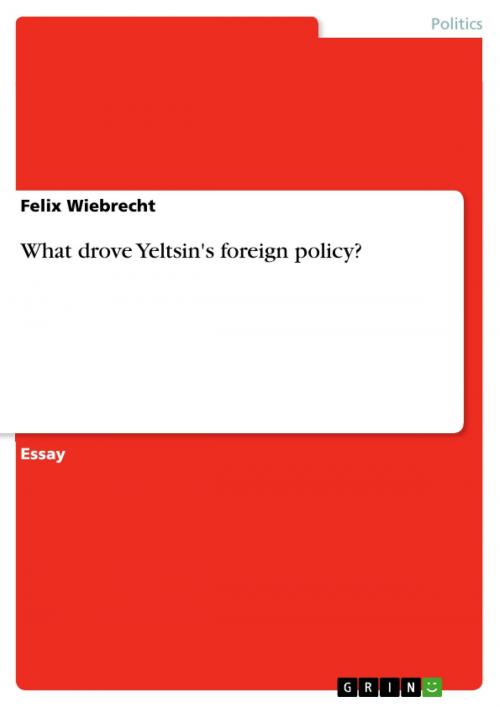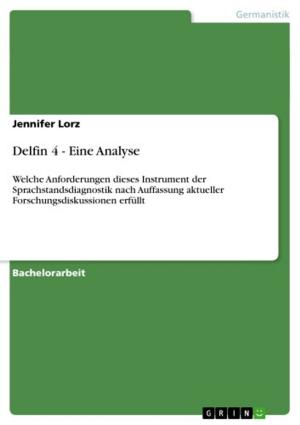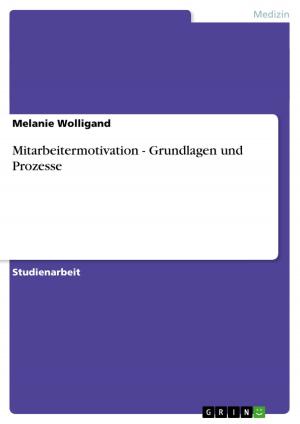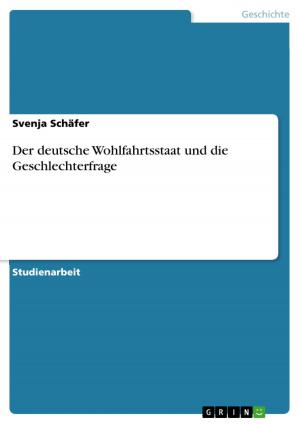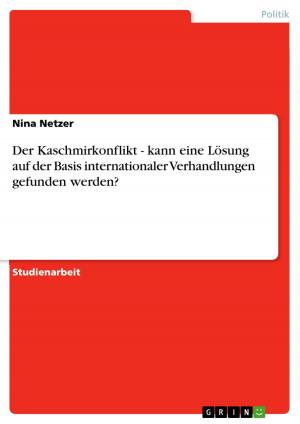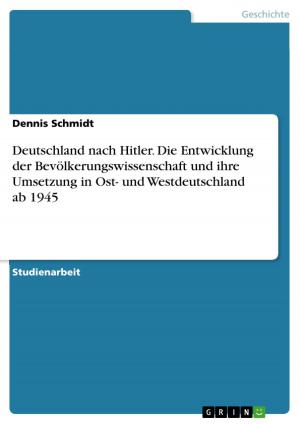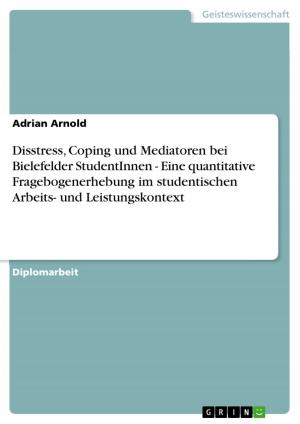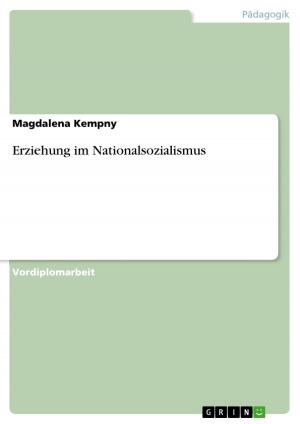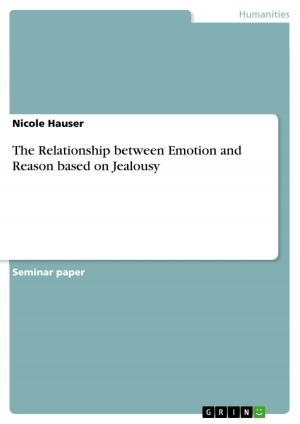| Author: | Felix Wiebrecht | ISBN: | 9783656930860 |
| Publisher: | GRIN Verlag | Publication: | March 27, 2015 |
| Imprint: | GRIN Verlag | Language: | English |
| Author: | Felix Wiebrecht |
| ISBN: | 9783656930860 |
| Publisher: | GRIN Verlag |
| Publication: | March 27, 2015 |
| Imprint: | GRIN Verlag |
| Language: | English |
Essay from the year 2015 in the subject Politics - International Politics - Region: Russia, grade: A5, University of Aberdeen, course: Soviet and Post-Soviet Foreign Policy, language: English, abstract: This paper wants to analyse Yeltsin's foreign policy in terms of the underlying factors that drove these procedures in his first term as president. Therefore, it will analyse specific events to a lesser extent but rather focus on especially domestic and systemic circumstances that explain new Russia's leaders' behaviour. The essay will first of all focus on the systemic and domestic conditions Russia faced when Yeltsin was elected as president in order to explain his pro-Western policies in the early 1990s. It will then proceed with an analysis of the factors that led the foreign policy elite to reevaluate its foreign policy ultimately shift its priorities. Subsequently it will analyse the Statist thinking as dominant approach of foreign policy since 1993 and its impact on these very policies.
Essay from the year 2015 in the subject Politics - International Politics - Region: Russia, grade: A5, University of Aberdeen, course: Soviet and Post-Soviet Foreign Policy, language: English, abstract: This paper wants to analyse Yeltsin's foreign policy in terms of the underlying factors that drove these procedures in his first term as president. Therefore, it will analyse specific events to a lesser extent but rather focus on especially domestic and systemic circumstances that explain new Russia's leaders' behaviour. The essay will first of all focus on the systemic and domestic conditions Russia faced when Yeltsin was elected as president in order to explain his pro-Western policies in the early 1990s. It will then proceed with an analysis of the factors that led the foreign policy elite to reevaluate its foreign policy ultimately shift its priorities. Subsequently it will analyse the Statist thinking as dominant approach of foreign policy since 1993 and its impact on these very policies.
